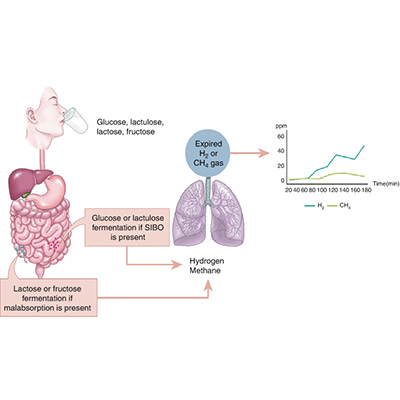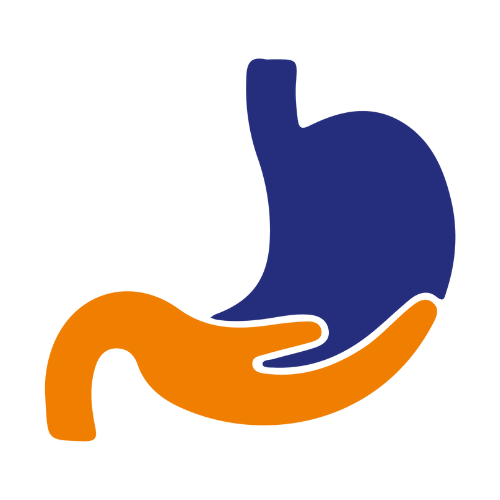
Hydrogen Breath Test
What is a Hydrogen Breath Test?
The hydrogen breath test is a simple and noninvasive way to diagnose common gastrointestinal conditions, including lactose intolerance and SIBO (small intestine bacterial overgrowth). This test measures hydrogen gas levels (H02) in the breath you exhale. Different versions of the test measure your digestion of different sugars. The results help healthcare providers confirm or rule out certain specific causes of your digestive problems.

Why is a Hydrogen Breath Test
required?
Three main conditions which require Hydrogen Breath Test are:
- Intolerance to Sugar: It is a condition in which the dietary sugars do not get digested properly. Lactose intolerance, for instance, is intolerance to sugar found in milk or other dairy products
- Small Intestinal Bowel Growth is a condition in which abnormal numbers of bacteria are present in the small intestine
- Rapid Passage of food through Small Intestine
Certain foods, medications and activities can alter the results of the hydrogen breath test. Your healthcare provider will ask you to follow some specific guidelines in the weeks, days and hours leading up to the test to maximize its accuracy.
- One month before: You’ll be asked to stop taking antibiotics and probiotics, both of which can alter the normal balance of bacteria in your gut.
- One week before: You’ll be asked to stop smoking. Also stop taking any laxatives or fiber supplements, antacids and prokinetics, which affect your motility.
- One day before: You’ll be asked to limit your diet to only low-fiber, easily digested foods. Specific recommendations may vary, but the diet often excludes oils and fats, sweeteners and seasonings, dairy products and grains, except for white bread and white rice. Baked or boiled fish or poultry with salt and pepper are safe bets.
- On the day of the test: You’ll be asked to fast for 12 hours. That means no food or water. You’ll also be asked to avoid exercising or sleeping within a few hours of the test.
It also best to avoid the following on the day of the test:
- Smoking or passive smoking
- Chewing gum
- Using mouthwash
- Exercising
How one should prepare?
What to Expect During & After the Procedure
What Happens After Procedure?
Typically, patients receive their test results in about two weeks.You may resume your normal activities and diet after a hydrogen breath test. Your doctor will analyze the results to see if and when large amounts of hydrogen or methane appear in your breath samples. If the amount of hydrogen in the breath raises by 20 ppm or more after consuming the solution, the patient may be diagnosed with a sugar intolerance or Small Intestinal bacterial growth, based on his or her symptoms.
What to Expect During the Procedure?
You’ll give your first breath sample by breathing into a breathalyzer machine, which often looks like an inflatable bag with a tube attached. Then, you’ll drink the sugar solution. After consuming the sugar, you’ll continue to give breath samples for the next few hours, at intervals of about 15 to 30 minutes. You can watch TV or read while you’re waiting between samples. Physical activity should be limited during the test. You may also be asked to record your digestive symptoms resulting from the test sugar — any abdominal pain, bloating, farting, etc.
What are the risks of Hydrogen Breath Test?
The hydrogen breath test is noninvasive and generally harmless, but it does identify digestive problems by inducing those problems. So while breathing into a bag might be painless in itself, ingesting the test sugar may well result in some abdominal discomfort — the same kinds of discomfort that made you seek medical care in the first place. Hopefully, the test will help isolate the underlying cause of your symptoms. Once you’re able to treat the cause, you won’t have to suffer from your symptoms much longer.
Contact us
Call Us
Our Location
A-Ground Floor, Lancelot Apartment, Opposite Kalyan Jewellers S.V. Road, Borivali West, Mumbai, Maharashtra 400092.
